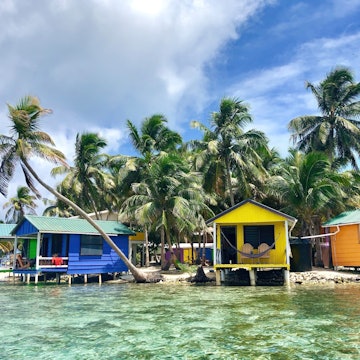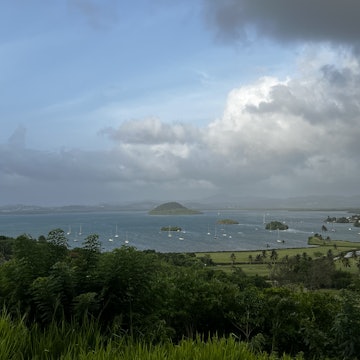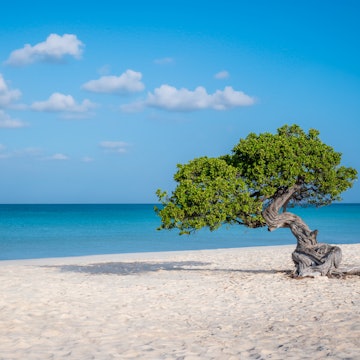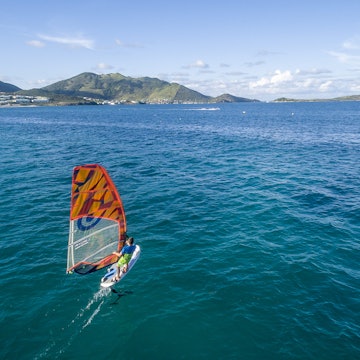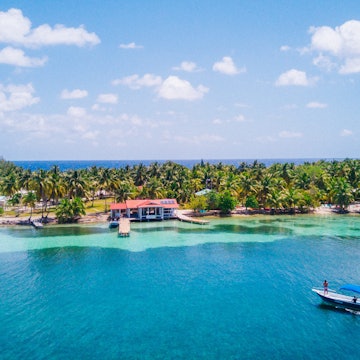
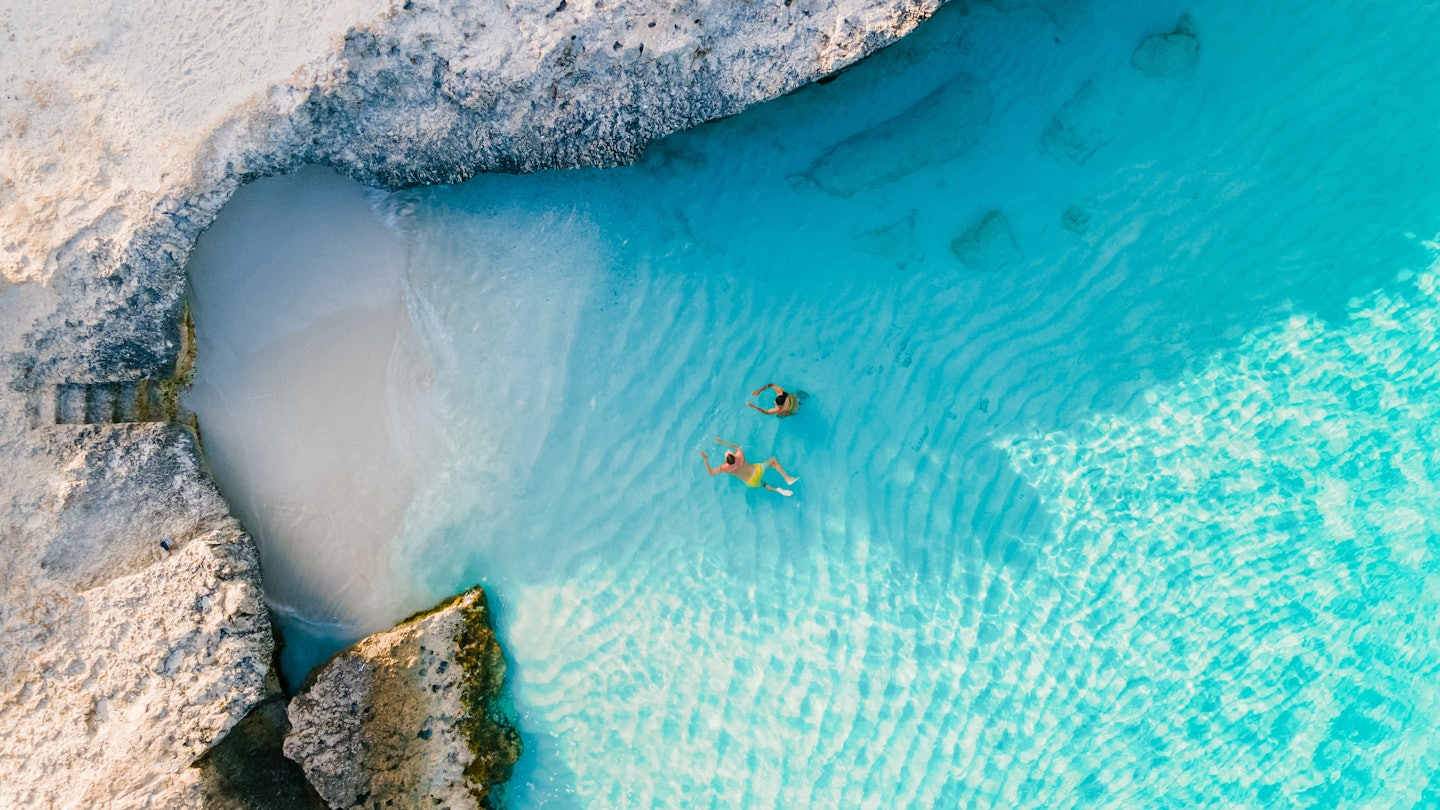
Tres Trapi beach in Aruba. fokke baarssen/Shutterstock
Forming a delightful trio lying just off the coast of South America, Aruba, Bonaire and Curaçao (affectionately known as the ABC Islands) appeal to sun-seeking travelers from all over the world.
At first glance, there doesn’t seem to be much to differentiate these three Dutch-affiliated islands. Yet while they do share some elements of culture and geography (and sun!), each one has its own personality and distinct opportunities to suit different travelers’ interests.
Whether you’re into underwater adventures, lazing on the beach or exploring Caribbean culture, read on to find out which one of the three is the right match for you.

Bonaire is best for scuba diving and underwater exploration
While both Aruba and Curaçao offer diving and snorkeling experiences, the tiny island of Bonaire is well known throughout the global diving community for its world-class reef system, considered one of the healthiest in the Caribbean.
And while that superlative is enough to justify booking a ticket, there’s another bonus: the diving here is also some of the most accessible, with spectacular sites sitting only a few meters offshore.
Bonaire is ringed by its National Marine Park, 6700 hectares (16,550 acres) of protected waters featuring 85 separate dive sites, many of them accessible simply by walking into the water. These sites are marked by yellow stones placed along the main roads that trace the circumference of the island – and each one yields a unique underwater experience.
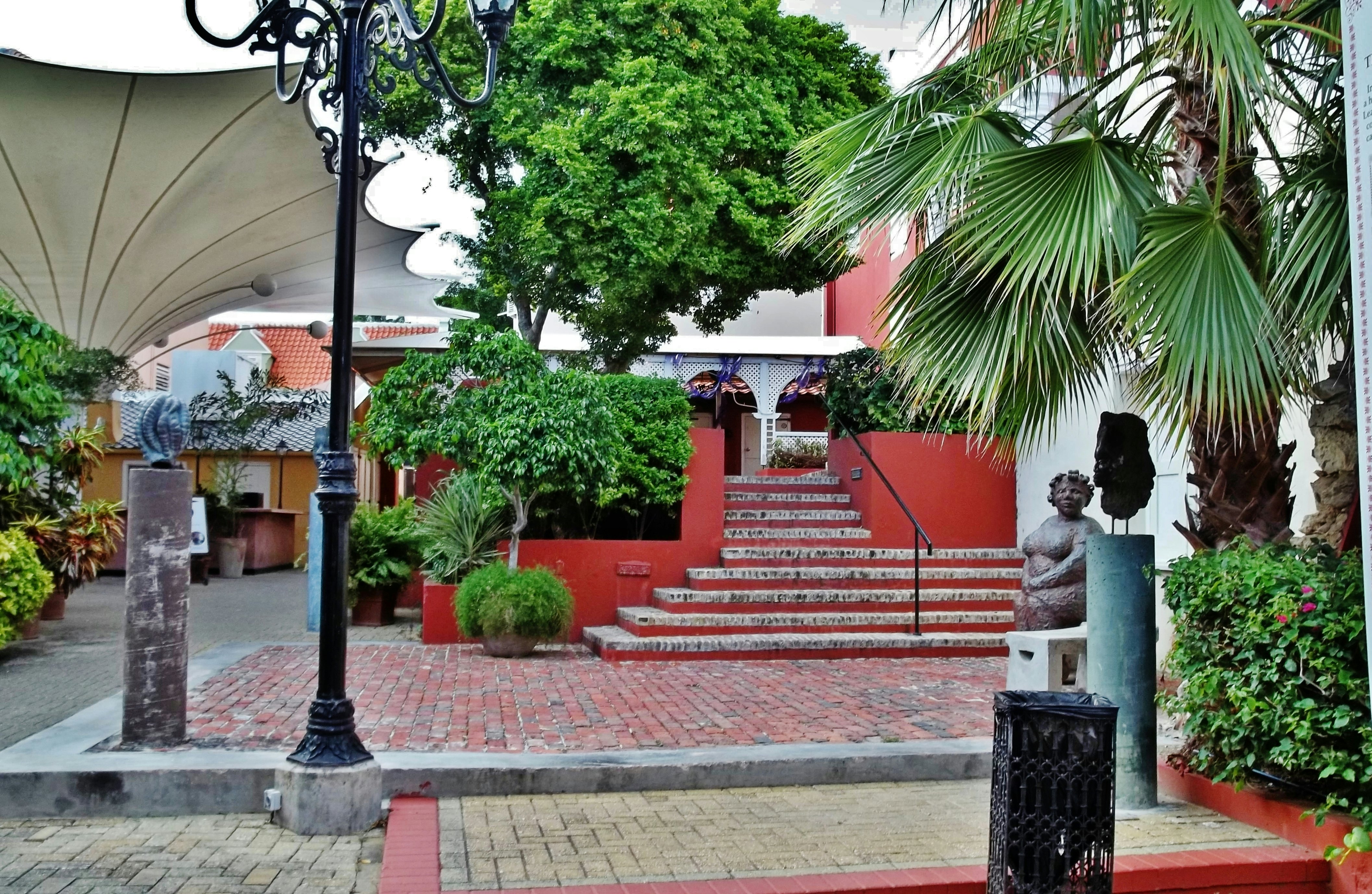
Curaçao has the edge on culture
The largest of the three islands and the only one that has major industries besides tourism, Curaçao acts as the de facto art-and-culture center of the ABC Islands. Here, you’ll find art and history museums, galleries, music venues and a bustling capital city that doubles as a UNESCO World Heritage Site.
If you’re interested in history, the Kura Hulanda Museum tells the important but tragic story of the history of enslaved people in Curaçao and the Caribbean – a must-see to understand the island’s past and present.
Art lovers can spend a whole afternoon at Landhuis Bloemhof, a contemporary-art museum featuring sculptures, installations and even an entire gallery made out of thorns. Those interested in culture outside of museums shouldn’t miss the restaurants and bars of Pietermaai, or the expansive street art in Otrobanda.
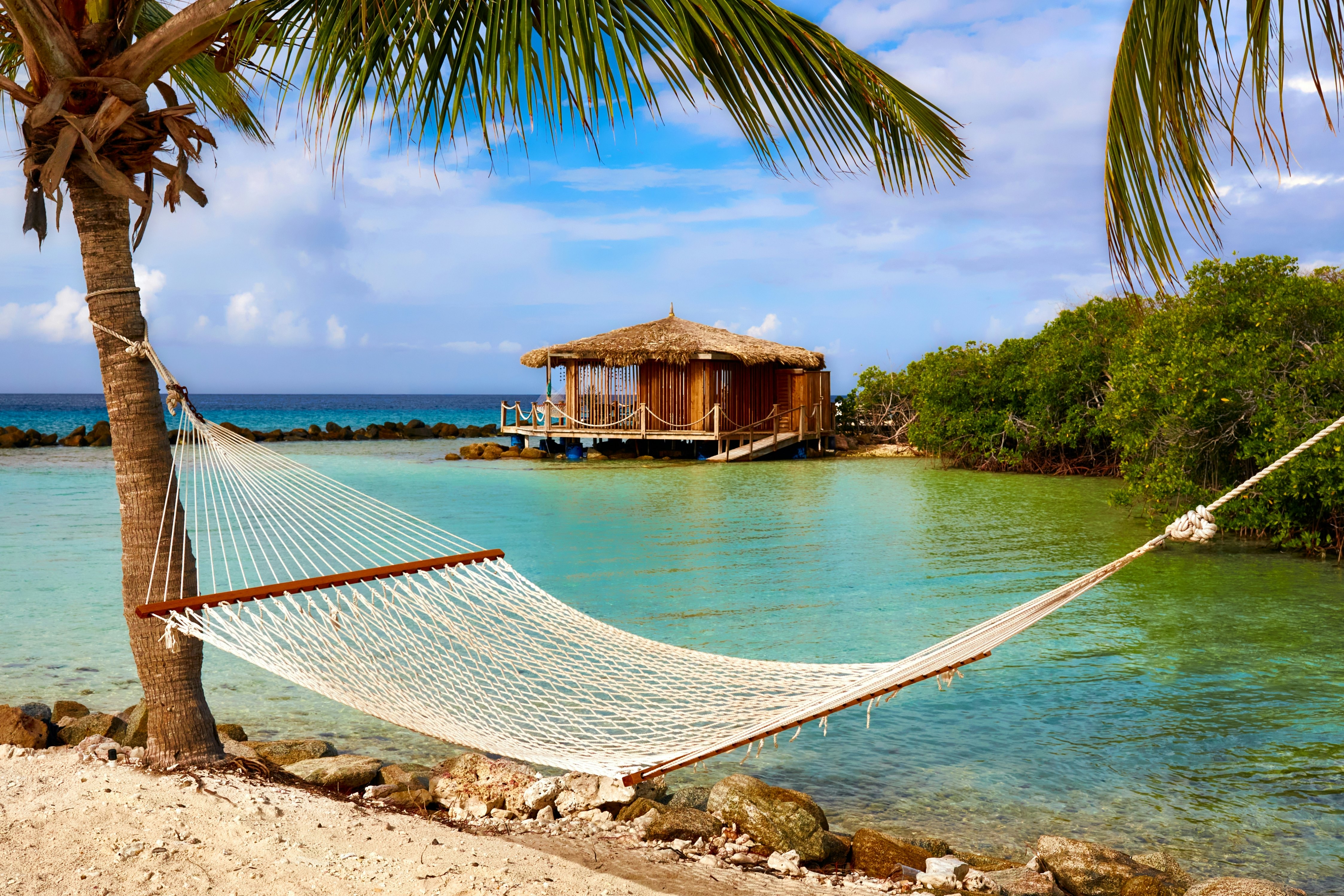
Aruba has the most pleasant weather
While all three islands are sunny places largely out of the path of Caribbean hurricanes, Aruba wins the award for best weather, thanks to the balmy trade winds that constantly sweep through.
These winds have shaped the island’s geology and even its flora – just look at those wind-bent Fofoti trees – and have a lovely cooling effect, relieving you from the hot sun that beats down the vast majority of the year.
That said, the sun's rays are intense even with the cool breeze, so always layer on the SPF. Yet as the sun starts to set and that breeze flutters across the island, you really do see why it’s called paradise.
Aruba and Bonaire both have fantastic water sports
It’s tough to pick a winner for this one, so we are calling a tie: both Aruba and Bonaire are known for their kitesurfing, windsurfing and diving scenes. Which means adrenaline seekers will be well-positioned for a great trip on either island.
Aruba hosts the Hi-Winds Caribbean Championship every year, which features kitesurfing, windsurfing, paddle-boarding, kitefoiling and mountain-biking categories, and draws spectators from around the world.
Bonaire has a huge windsurfing scene at Sorobon on Lac Bay and kitesurfing on its southwestern shore, and it plays host to an annual international sailing regatta.

Curaçao has the the best beaches
All three islands are great destinations for anyone in need of a dose of vitamin D – yet both Aruba and Bonaire’s coastlines are largely rocky.
If you want a plethora of picturesque sandy beaches to choose from, Curaçao is your destination: the island features a series of pristine beaches hemmed in by dramatic limestone and coral stone cliffs, each one offering activities for any type of traveler.
Families will love the gorgeous crescent known as Grote Knip and won’t be left wanting for amenities, while those looking for a little more peace and quiet will love Kleine Knip and Playa Lagun.
Adrenaline seekers will enjoy the cliff jumping at Playa Forti, while those looking for a little bit of luxury will find themselves right at home at the beach clubs of Jan Thiel and Papagayo.
Aruba has a superior party scene
Looking to blow off some steam, island-style? Aruba’s lively resort area offers option after option for beachside revelry – stylish lounges, energetic clubs, piano bars, casinos...you name it.
Most venues can be found along the coastline in Oranjestad or slightly further north in Palm Beach. This whole area buzzes throughout the day – and come nightfall, it takes on a festive, genial vibe.
Honorable mention for this category goes to Curaçao. The nightlife options in Willemstad have a local feel and are plenty of fun.

Bonaire lets you get off the beaten track
The outlier when it comes to tourist traffic, humble Bonaire will surprise and delight those willing to make the extra effort to hop over to its rocky shores.
While the island is no secret in diving and snorkeling circles, it remains a quiet, friendly place to visit, as big resorts and mass tourism have (happily) yet to take over any part of the island.
Kralendijk and Rincón offer small-town vibes. And don’t be surprised if you get whisked into an impromptu sightseeing tour with a local: Bonarians are proud of their nature and culture, and it shows in their hospitality and their collective land stewardship.







